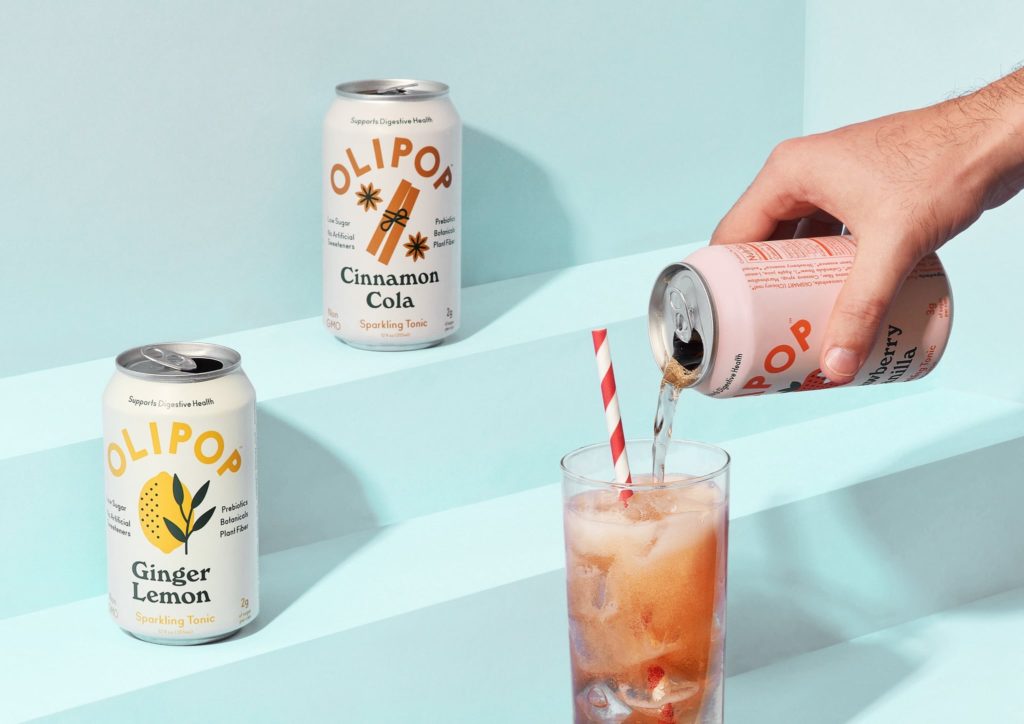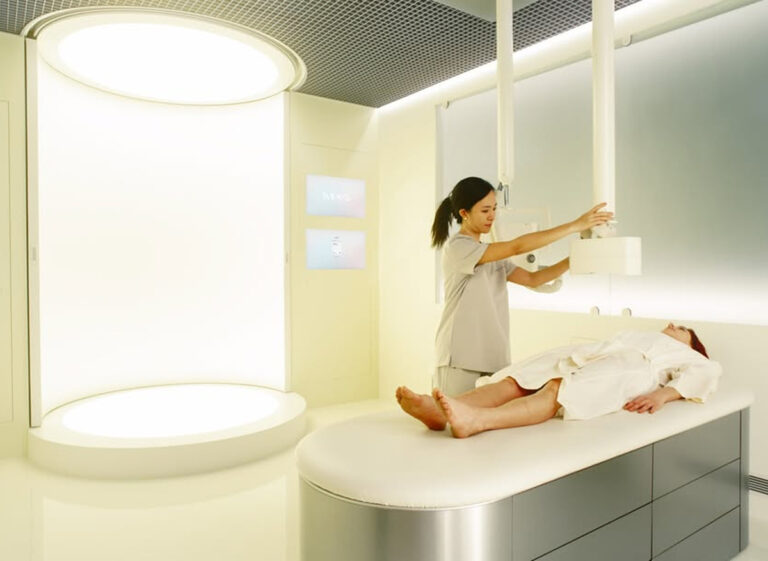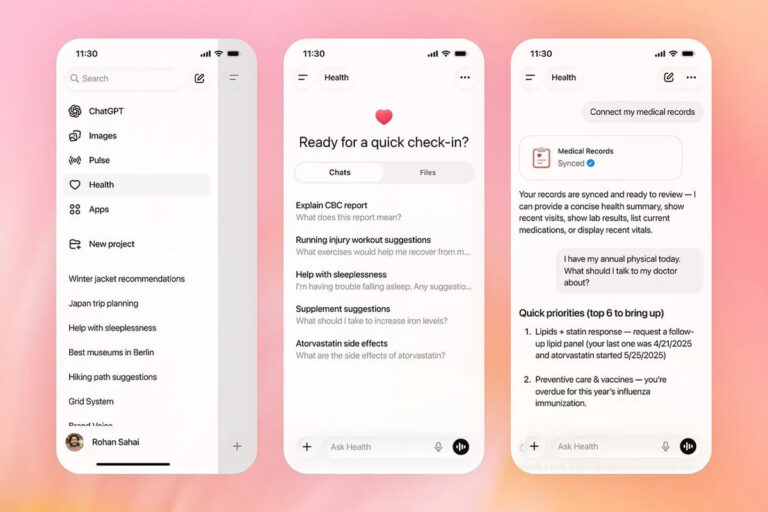OLIPOP, a soda brand touting functional, gut-friendly ingredients, closed a $30M Series B round led by Monogram Capital Partners.
The strategic funding, which values the company at $200M, comes on the arc of impressive growth as consumers seek out better-for-you beverages.
Bubbling Up
Riding the concurrent trends of gut health and ”functional” beverages, the three-year-old company has had a strong entry into the soda market.
- In 2020, the brand reported 900% sales growth.
- Bolstered by a $10M Series A, OLIPOP expanded wholesale distribution nationwide while developing a subscription DTC channel.
- The brand anticipates a $100M run-rate by the end of 2022.
Touting low sugar, prebiotic fiber, and botanicals through ingredients like stevia, Jerusalem artichokes, chicory root, and calendula flower, OLIPOP emulates classic flavors while undercutting traditional players in the $220B global industry.
While year-over-year sales of classic pop continue to slide, in 2020, functional soda became the fastest-growing beverage category at 465%. And everyone from private equity to Hollywood is looking to get on board healthy soda’s wild ride.
Participating in the round were a who’s who of A-list celebrities, including actresses Mindy Kaling and Gwyneth Paltrow, recording artists Camila Cabello and Logic, plus Priyanka Chopra and all three of the Jonas Brothers.
But OLIPOP isn’t the first big-name bandwagon, and it isn’t the only prebiotic pop in the game.
- In August 2021, Poppi secured $13.5M in a round led by CAVU Venture Partners, with participation from NBA stars Russell Westbrook and Kevin Love, Halsey, and a long list of film and TikTok personalities.
- Also in summer 2021, Health-Ade debuted Health-Ade Pop, a prebiotic soda line, ahead of selling a controlling stake to PE firms First Bev and Manna Tree.
Pour It On
Consumers have come to expect beverages to do more for their health and less for their waistlines. Now, a category called “functional”—including energy drinks, vitamin-added sparkling water, cannabis-infused drinks, and more—is on a course to more than double in size by 2030, reaching $265.9B.
And the competition for it is becoming so crowded, it’s becoming impossible to keep track of all the players.
Takeaway: As nuanced products—like A SHOC’s “performance energy”, Pepsi x Starbucks’ antioxidant caffeinated drink, GT’s cannabis kombucha, or Kin’s sparkling euphoric—multiply, the only clear losers are those without a “clean” label.






